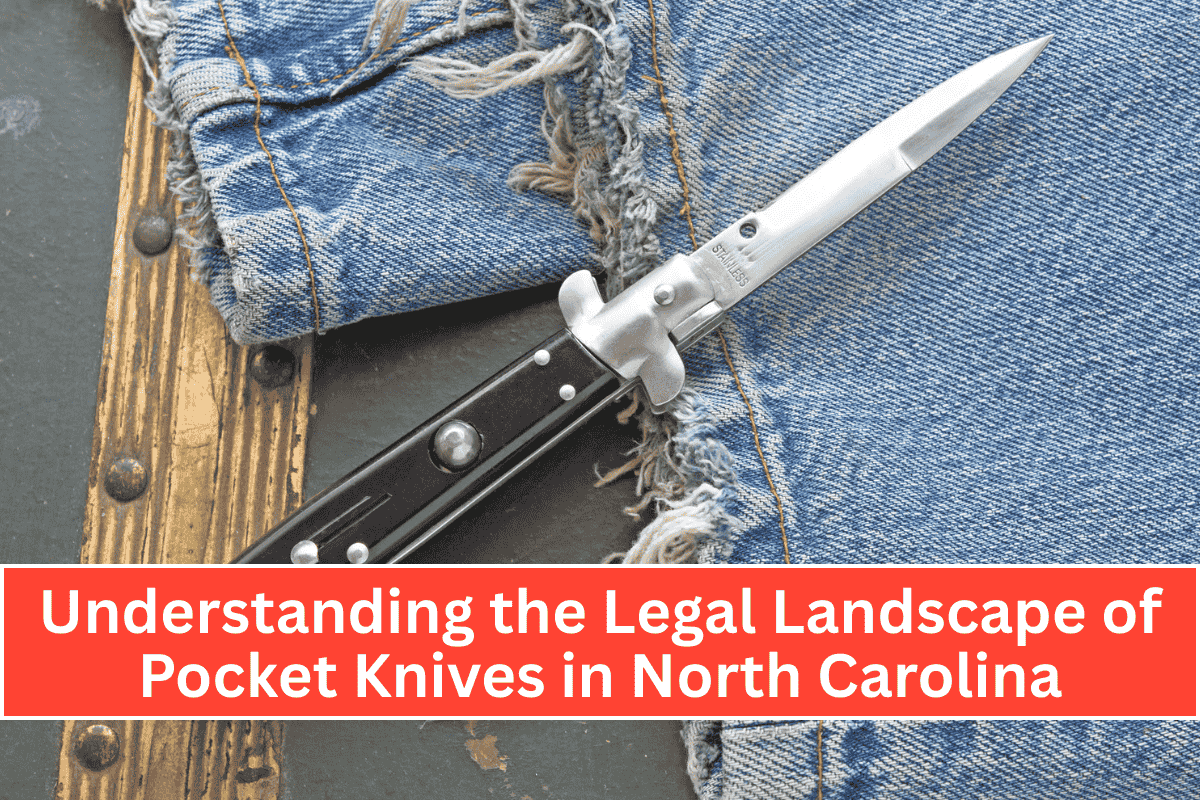When it comes to owning or carrying knives in North Carolina, it’s important to understand the laws and regulations that govern their use. While knives are popular tools for a variety of purposes — from self-defense to outdoor activities — they are subject to specific rules in the state.
Knowing these laws is not only essential to avoid legal troubles but also helps to ensure safety and responsible use. This guide breaks down key aspects of North Carolina’s knife laws, from concealed carry to exceptions for certain types of knives.
Introduction to Knife Laws in North Carolina
Understanding North Carolina’s knife laws is crucial for anyone who owns or carries knives. These laws are designed to differentiate between different types of knives, set restrictions based on blade length and function, and provide clarity on when and where certain knives can be legally carried.
While some knives, such as small pocket knives, are generally permitted, others, like tactical or ballistic knives, have stricter regulations.
This guide explains the primary legal frameworks for knife ownership, including when carrying knives openly is allowed, and when concealed carrying can lead to legal issues. Knowing these laws is not just about avoiding fines or imprisonment, but also about promoting the safe and proper use of knives in public and private spaces.
Key Definitions and Classifications
Understanding the types of knives covered under North Carolina’s laws is critical. Here’s a breakdown of some important categories:
Types of Knives
Pocket knives: These are small, folding knives that can be legally carried in most situations, provided they are not used for illegal purposes.
Tactical knives: Often larger or designed for self-defense, these knives might have restrictions on how and where they can be carried.
Bowie knives, dirks, and daggers: These larger knives are subject to stricter laws and are typically more regulated due to their potential for harm.
Ballistic knives: These knives, which can propel a blade, are illegal to possess, sell, or carry in North Carolina because of their dangerous nature.
Legal vs. Restricted Knives
Legal knives: These include common tools like pocket knives and utility knives, which can typically be carried openly or concealed depending on their blade length and purpose.
Restricted knives: Ballistic knives, switchblades (unless a special exemption applies), and knives designed for violence are typically restricted. The possession of these knives can lead to criminal charges, especially if carried in public places or concealed.
Concealed Carry Regulations
North Carolina law requires specific rules when it comes to concealed carry of knives. Generally, concealed carry is subject to stricter regulations than openly carrying a knife. Here’s what you need to know:
What is Considered Concealed Carry?
In North Carolina, a knife is considered concealed if it is hidden from plain sight and easily accessible. This means carrying knives like Bowie knives or dirks under clothing or in an inconspicuous manner can lead to legal consequences, as it may be perceived as an intent to use the knife as a weapon.
Exceptions for Ordinary Pocket Knives
Pocket knives, especially small folding knives that are not designed for combat, may not be classified as concealed carry if they are kept in an ordinary manner.
However, it’s essential to ensure that your pocket knife is small enough (usually under 4 inches in blade length) and does not have features intended for aggressive use. Always check the knife’s design and function to ensure it meets the requirements for legal carry.
Open Carry and Location-Based Restrictions
In North Carolina, carrying a knife openly is generally allowed, but it comes with location-based restrictions. Here’s a summary of key considerations:
Public Spaces and Government Buildings
Public spaces: You can generally carry knives in most public places in North Carolina, but some areas are off-limits. For example, courthouses and federal buildings have stricter rules regarding weapons, including knives. Always be aware of the location to avoid violating the law.
Government buildings: Carrying knives in government buildings is heavily restricted, and violating these laws can lead to criminal charges. It’s important to verify the specific rules for government-run spaces in your area.
School Grounds and Educational Property
Carrying knives on school property is prohibited in North Carolina. This applies to all educational institutions, from elementary schools to universities. The law aims to maintain a safe environment for students and staff. Violating this rule can result in serious legal consequences, including criminal charges.
Additionally, state-owned highway rest stops are considered off-limits for knives. Carrying knives here, especially those over certain blade lengths, can lead to penalties.
North Carolina’s knife laws are essential for those who own and carry knives, whether for work, hobbies, or self-defense. The state’s regulations clearly distinguish between different types of knives, with restrictions on automatic knives, ballistic knives, and larger knives like Bowie knives. Pocket knives are generally legal to carry, but they must meet certain criteria, especially when concealed.
Understanding these laws helps ensure safe and lawful knife use, protecting individuals from legal troubles. Always be mindful of where you are carrying knives — public spaces, schools, and government buildings may have stricter laws that prohibit carrying knives.
Lastly, if you’re uncertain about specific knife regulations or if you face legal issues, it’s advisable to seek legal counsel to navigate the intricacies of North Carolina’s knife laws.












